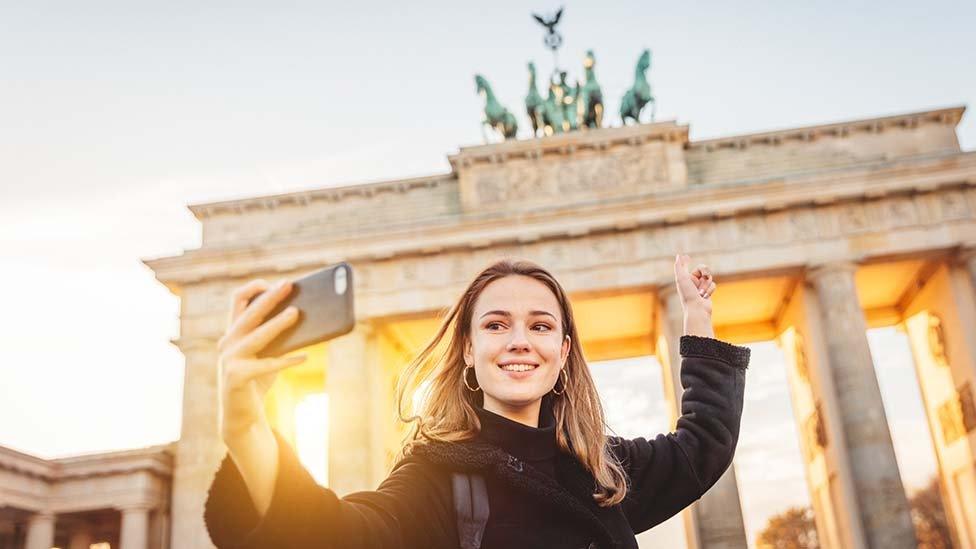Covid: The holidaymakers having to self-isolate abroad
- Published
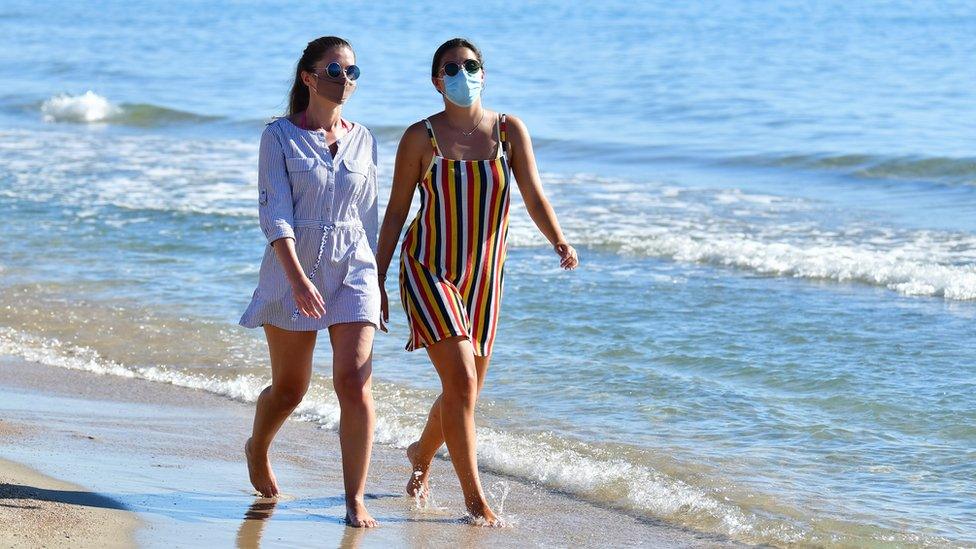
In early July, university student Aimee flew out to Zakynthos, Greece. More than a week into her trip, the tour operator she was travelling with said that there had been a few cases of coronavirus and asked everyone to take a test. Aimee's came back positive.
"I was sharing with a roommate, but the operator moved them out so I could isolate," She tells the BBC. Aimee is now on the fifth day of her self-isolation at the resort in Zakynthos.
"My friends have been bringing me food and dropping it at the door. I've got a balcony, but I'm still going a bit crazy in the room."
Aimee says she couldn't find any information for a while about what protocols she was meant to follow, but she is paying for tests every three days. Fortunately, her hotel room was already paid for until the end of the month.
"I knew it was a risk going on holiday, but it was one I was willing to take," she says.
'The price of holidays in the UK has sky-rocketed'
Samantha is currently on the seventh day of quarantining with her friend Charlotte in Majorca in the Balearic Islands.
"My sinus felt a little bunged up, but I just put it down to the flight and pressure that I usually get after flying," she says.
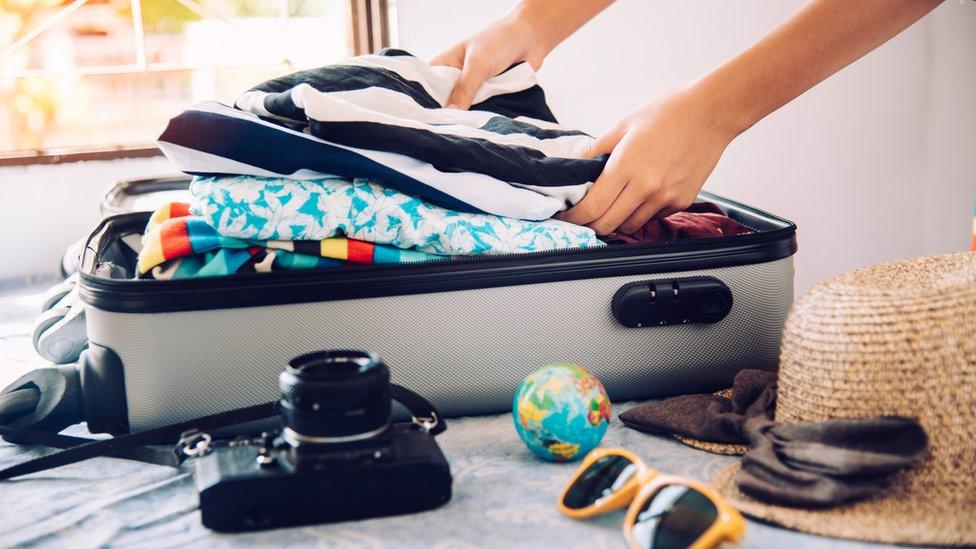
She took an NHS lateral flow test that she had brought with her and tested positive. Immediately she called her tour operator and the hotel reception to let them know and for advice.
The tour operator and the hotel recommended speaking to the Spanish Health Authorities, who told the two friends to take a PCR test and isolate where they were for 10 days.
"I haven't felt ill as such, and even though we are stuck in our hotel room, we have tried to make the most of what we have," she says.
"We have been using the balcony as a living room, taking my tablet out to watch films in the evening and trying to make the most of it."
Samantha says that she and Charlotte have been very touched by the kindness shown to them.
Charlotte reached out asking for a kettle and teabags on a private Facebook group, and a fellow guest brought them to the hotel when she arrived.
"Other guests in the hotel we have talked to over the balcony have also been very helpful and brought us milk and butter from the restaurant," says Samantha.
"It is lovely to know that there are so many people willing to help."
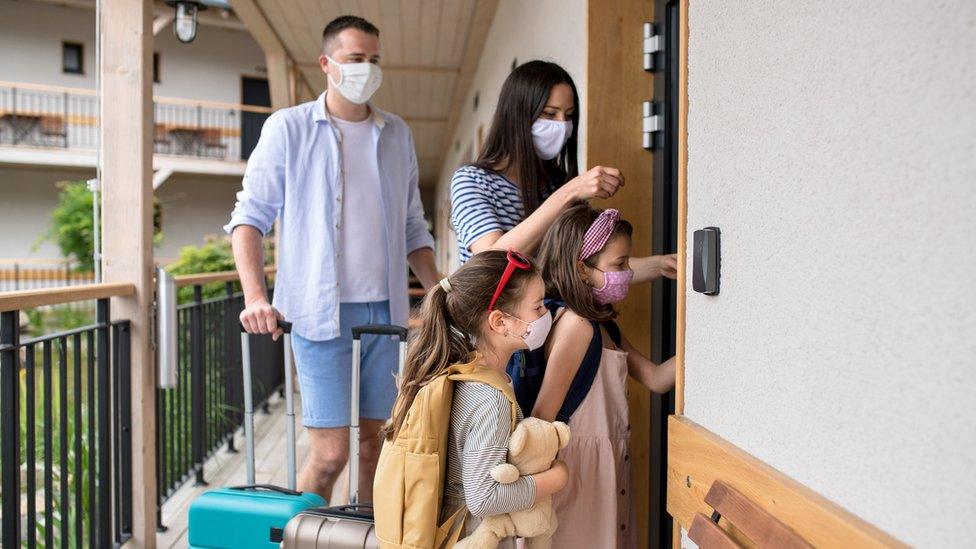
The pair have had to pay upfront to keep the room on at the hotel, but their travel insurance will reimburse their costs. As Samantha is the one with coronavirus, her new flight home is also covered, but Charlotte will have to pay for her flight home, because her travel insurance doesn't cover her if she is not ill.
Asked why they chose to go abroad in the midst of the pandemic, Samantha said that they were aware of the risks.
"My friend has worked all through the pandemic and has always used foreign holidays to recharge," she explains.
"The prices of everything in the UK has sky rocketed, there's no availability anywhere and the weather isn't guaranteed."
The women feel that people "need to start living with COVID-19 because it is quite clearly not going away".
What to do if you test positive for Covid while abroad
"It's essential to take out insurance, even in some cases if you are on a package holiday," says Rory Boland, Travel Editor at consumer group Which?.
"It's crucial to check the detail to make sure that you have enough cover if you do need to isolate. Some policies have a 'day benefit' rate, but check that that will be enough to cover the cost of the hotel and everything else you might need if you do need to quarantine."
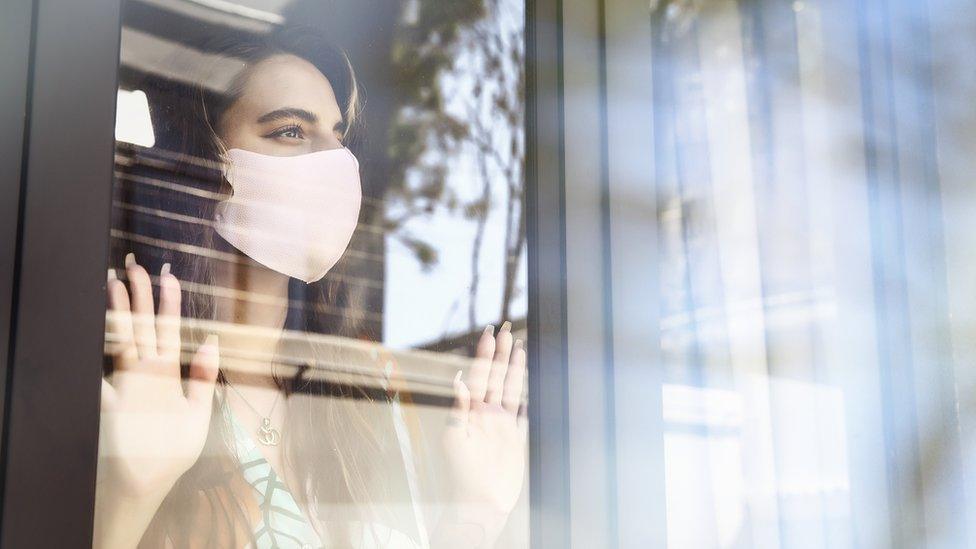
He added that some customers might have travel insurance or flexible booking policies that might also just cover them if they need to self-isolate, but not necessarily the other people travelling with them.
Which? says that when you're abroad, you should still minimise the risk of catching Covid as you would at home - by meeting people outside if possible, limiting the number of people you meet in crowded places and washing your hands regularly. Some countries will have different policies on when and where to wear a mask.
If you do find you test positive, each country - and sometimes the regions within it - will have different rules on where and for how long you need to quarantine, Mr Boland adds.
Some might require travellers to stay in their hotel rooms, while others might be moved to designated quarantine hotels.
"Contact your hotel and travel operator in the first place," says Mr Boland. "They should be able to help you navigate some of the health information, particularly if it is in a different language."
If you are staying independently or are just struggling to find the information you need, the Foreign Office , externaldoes have advice on what to do if you test positive in different countries.
If you need urgent help because something has happened to a friend or relative abroad, contact the Foreign, Commonwealth & Development Office (FCDO) in London on 020 7008 5000 (24 hours).
And if you need emergency help, the FCDO recommend contacting the nearest British embassy, consulate or high commission.
- Published29 November 2021
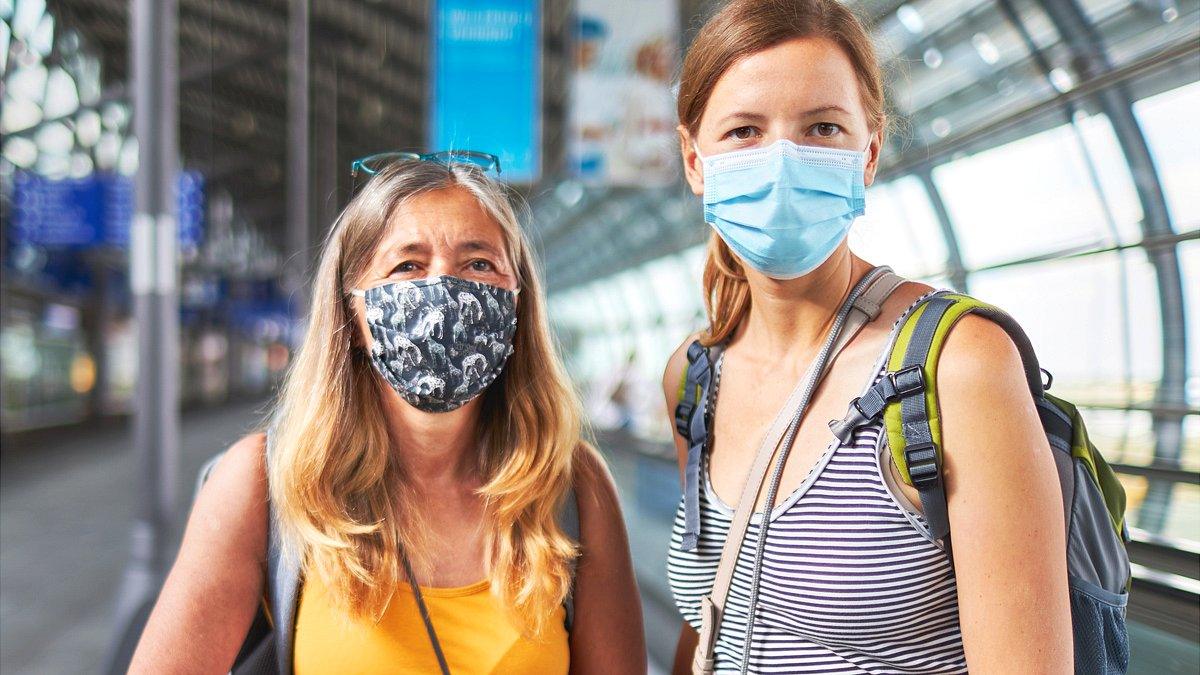
- Published11 February 2022

- Published14 February 2022
